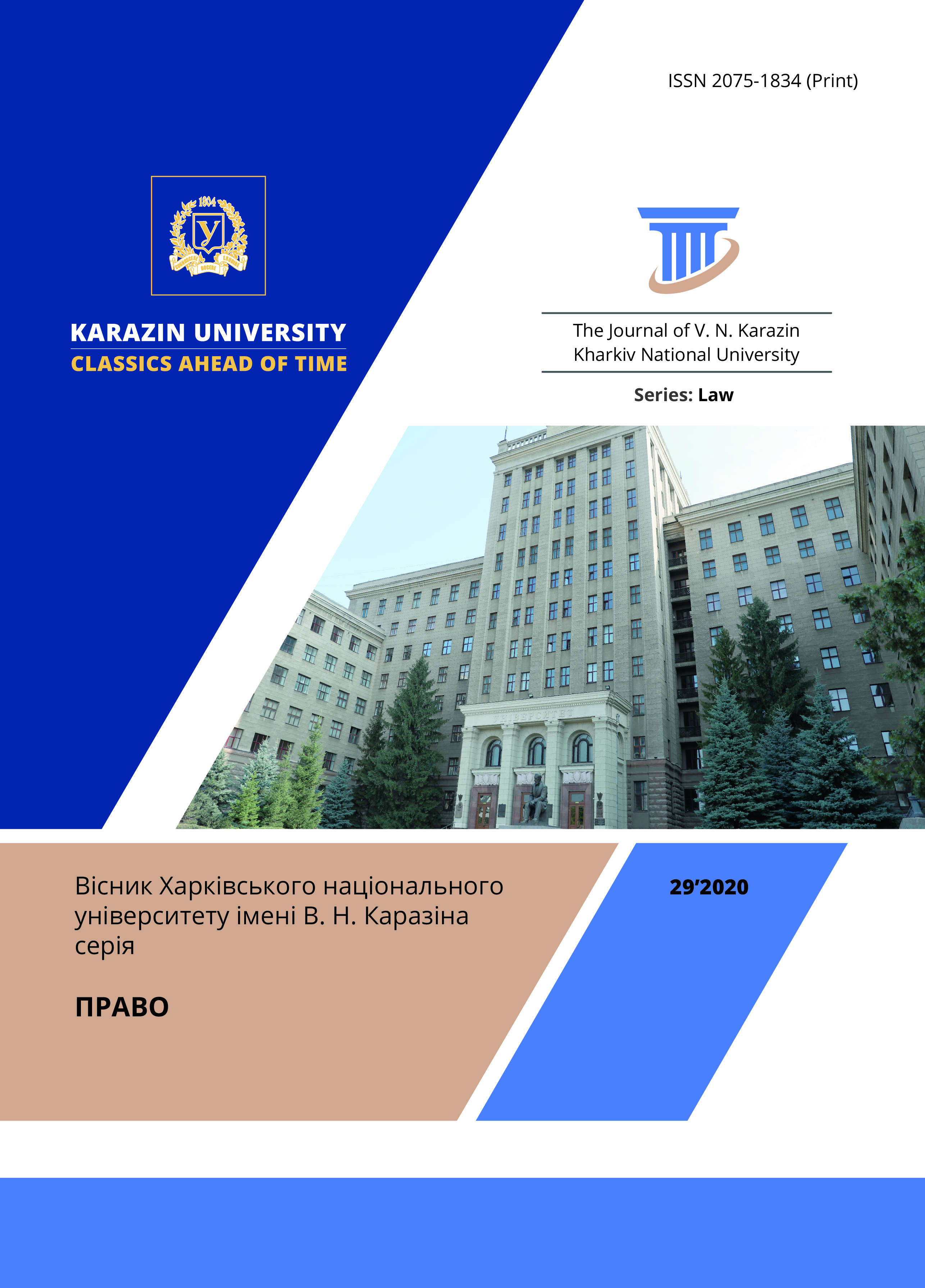LEGAL REGULATION OF EXCISE TAXATION IN UKRAINE
Abstract
Tax revenues are by far the most important source of revenue generation, and a well-functioning tax system is critical to successful economic performance. Various reforms have underlined that tax policy mismatch is one of the causes of the crisis in the country's economy. Taxes are divided according to their specific characteristics, so one of the defining features is how to collect them. Thus, depending on this, taxes are divided into direct, directly related to economic activities, and indirect, which are a premium to the price and are determined depending on the value added, turnover or sale of goods, works, services. The division of all taxes into direct and indirect taxes is of fundamental importance. With direct taxes, it is about specifying a person's ability to make tax payments, that is, taxing them directly. In the case of indirect taxes, they try to achieve the same goal in indirect ways and in another way: they tax the goods, including the amount of tax in the selling price, where it is paid directly by the consumer upon purchase.
Excise taxes are one of the types of indirect taxes. The main reason for the widespread excise tax is the significant fiscal benefit of its application. Excise tax revenues represent a significant share in the structure of the state budget revenues, therefore, with proper organization of tax administration, excise taxes are the main source of high and stable revenues to each country's budget. In order to make a sound choice of directions for improving the mechanism of excise taxation, to strengthen the revenue base of the budget system of the country, to actively influence the state on socio-economic processes related to consumption of excisable products, further research on this issue is needed, as well as its improvement.
Downloads
References
2.Бюджетний кодекс України: Закон України від 08.07.2010р. No 2456-VI. Відомості Верховної Ради України. 2010. №50. Ст. 572.
3.Бюджетний кодекс України: науково-практичний коментар: станом на 1 берез. 2011 р. За ред. Л. К. Воронової, М. П. Кучерявенка. Харків: Право, 2011. 608 с.
4.Иванов Ю. Б. Налогообложение: терминология законодательных и
нормативных актов: словарь-справочник. Харьков: Издат. Дом «ИНЖЭК», 2003. 690 с.
5.Козырин, А. Н. Акцизы в системе таможенных платежей. Финансы, 2012. No1. С.15-27
6.Макушенкова, М. В. К вопросу об эффективности акцизного Налогообложению. Финансы , 2014. No 8. С. 69 - 83.
7.Науково-практичний коментар до Податкового кодексу України: в 3 т. за заг. ред. М. Я. Азарова. Київ: Міністерство фінансів України, 2010. 2389
8. Податковий кодекс України: Закон України від 02.12.2010 р. № 2755-VI. Відомості Верховної Ради України. 2011. № 13‒14, №15‒16; № 17. Ст. 112.
9.Податкове право. Фінансово-правовий механізм формування дохідної частини бюджетів. Правові основи здійснення фінансового контролю: навч. посіб. Київ: „МП Леся”, 2005. 380 с.
10. Руденко. Ю.М. Фінансові системи зарубіжних країн : навч. посібн. Ю.М. Руденко, В.В. Токар.: Міністерство освіти і науки України, ДВНЗ "Київський нац. екон. ун-т ім. В. Гетьмана". –К. : Вид-во КНЕУ, 2010. 347 с.
11. Шевляков В.С., Хаметова А.Р. Проблемы акцизного налогообложения в РФ: Научный электронный журнал «Матрица научного познания». 2017. №12. С. 92-95.
12. Value Added Tax and Direct Taxation: Michael Lang, Peter Melz et al
Date of publicationм, 2009. 1209 р.
Copyright (c) 2020 Kateryna Plotnikova

This work is licensed under a Creative Commons Attribution 4.0 International License.




